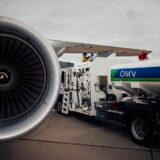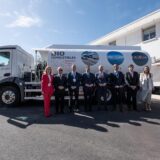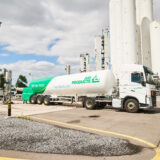
VARO to supply large volumes of SAF to Lufthansa from 2026
VARO Energy, a Swiss-based integrated energy company with customers across Europe, could supply the Lufthansa Group with large volumes of sustainable aviation fuel (SAF) from as early as 2026. The Lufthansa Group, an aviation group with worldwide operations based in Cologne, Germany, has signed a memorandum of understanding (MoU) with VARO Energy on the production and supply of SAF.
The MoU underpins the Lufthansa Group’s goal of driving forward the availability, market ramp-up and use of sustainable aviation fuels as a core element of its sustainability strategy. The airline group is continuously reviewing options for long-term purchase agreements and is already one of the largest customers of sustainable aviation fuel in Europe.
The two companies are also driving innovative processes to produce green hydrogen from biogenic waste materials. Green hydrogen is a significant CO2-free energy carrier that also plays an important role in the production of SAF.
For VARO Energy, the goal of providing decarbonization solutions to the aviation industry forms an important pillar of its corporate strategy. From 2026, VARO aims to produce around 260,000 tons of sustainable aviation fuel per year.
SAF is the generic term for all aviation fuels that are produced without the use of fossil energy sources such as crude oil or natural gas. Various production processes exist and different feedstocks are available as energy sources. The current SAF is mainly produced from biogenic residual materials such as used cooking oil.
As a “drop-in” solution, it is mixed with conventional kerosene before being transported to the airport. The maximum blending rate of SAF permitted under the fuel specification is currently 50%. In its pure form, SAF from biogenic residues can reduce CO2 emissions by up to 80% compared to conventional kerosene.
The Lufthansa Group has been involved in SAF research for many years and has built up an extensive network of partnerships and is driving forward the introduction of sustainable next-generation aviation fuels in particular. Special focus is placed on the forward-looking Power-to-Liquid and Sun-to-Liquid technologies, which use renewable energies or solar thermal energy as energy carriers.














